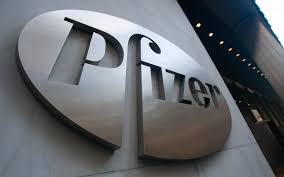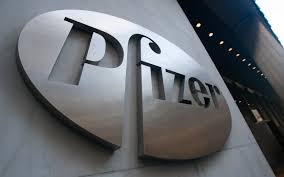
In a record deal for mergers and acquisitions, Pfizer Inc on Monday said it would buy Botox maker Allergan Plc for $160 billion. The company would also move its headquarters to Ireland to cut its U.S. tax bill.
With a combined annual revenue of about $64 billion, the acquisition will create the world's largest drugmaker. And in what is being termed as an increasingly popular and controversial maneuver aimed at helping U.S. companies lower their taxes by reincorporating overseas., it would also be the biggest-ever tax inversion deal.
While trying to crack down on the practice, U.S. President Barack Obama has called inversions unpatriotic. Even as the combined company will be known as Pfizer Plc and continue to be led by Chief Executive Officer Ian Read, the transaction was technically structured as smaller Dublin-based Allergan buying Pfizer to avoid potential restrictions.
The much awaited decision of whether to split the Lipitor and Viagra maker into two would be delayed by a period of two years, analysts say. It is expected that the decision would be taken by late 2016 and would sell off Pfizer's lower margin unit of products facing generic competition.
Offers from both the faster-growing branded products business, with additions like Botox, and its established products unit would be enhanced by the deal. Pfizer said that the decision to sell off the lower-margin business in 2017 has now been put off by the time required to integrate Allergan even though investors had been hoped the decision would come faster.
Allergan CEO Brent Saunders will become president and chief operating officer of the combined company with oversight of all commercial businesses. In a statement, Read, who has long sought to slash Pfizer's U.S. tax rate, said that the deal would help put the company on "on a more competitive footing."
While it was expected that Pfizer would pay 24 percent in corporate taxes this year, Allergan was supposed to pay just 15 percent. The company now expects a combined tax rate of 17 percent to 18 percent by 2017, said Pfizer Chief Financial Officer Frank D'Amelio.
About 18 months ago Read had made a failed attempt to buy out Britain-based AstraZeneca Plc with a $118 billion bid. The attempt was foiled after staunch opposition from that company's management and UK politicians.
Pfizer would be able to do more share buybacks and dividend payments after the merger and it would allow the company enhanced access to its tens of billions of dollars parked overseas over time, Pfizer representatives said on a conference call.
Saunders said the combination would provide access to about 70 additional worldwide markets for Allergan products.
Both the companies said that merger will deliver more than $2 billion in cost savings in the first three years. The deal is to be completed by the second half of 2016. It was not immediately clear how many jobs would be lost as a result.
The companies estimated the merger would increase earnings per share by 10 percent, excluding special items, in 2019 and add by a high-teens percentage rate in 2020
Allergen shares are valued at about 16 percent more than their closing price of $312.46 on Friday at $363.63 each. Pfizer shareholders would control of 56 percent of the combined company.
(Source:www.reuters.com)
With a combined annual revenue of about $64 billion, the acquisition will create the world's largest drugmaker. And in what is being termed as an increasingly popular and controversial maneuver aimed at helping U.S. companies lower their taxes by reincorporating overseas., it would also be the biggest-ever tax inversion deal.
While trying to crack down on the practice, U.S. President Barack Obama has called inversions unpatriotic. Even as the combined company will be known as Pfizer Plc and continue to be led by Chief Executive Officer Ian Read, the transaction was technically structured as smaller Dublin-based Allergan buying Pfizer to avoid potential restrictions.
The much awaited decision of whether to split the Lipitor and Viagra maker into two would be delayed by a period of two years, analysts say. It is expected that the decision would be taken by late 2016 and would sell off Pfizer's lower margin unit of products facing generic competition.
Offers from both the faster-growing branded products business, with additions like Botox, and its established products unit would be enhanced by the deal. Pfizer said that the decision to sell off the lower-margin business in 2017 has now been put off by the time required to integrate Allergan even though investors had been hoped the decision would come faster.
Allergan CEO Brent Saunders will become president and chief operating officer of the combined company with oversight of all commercial businesses. In a statement, Read, who has long sought to slash Pfizer's U.S. tax rate, said that the deal would help put the company on "on a more competitive footing."
While it was expected that Pfizer would pay 24 percent in corporate taxes this year, Allergan was supposed to pay just 15 percent. The company now expects a combined tax rate of 17 percent to 18 percent by 2017, said Pfizer Chief Financial Officer Frank D'Amelio.
About 18 months ago Read had made a failed attempt to buy out Britain-based AstraZeneca Plc with a $118 billion bid. The attempt was foiled after staunch opposition from that company's management and UK politicians.
Pfizer would be able to do more share buybacks and dividend payments after the merger and it would allow the company enhanced access to its tens of billions of dollars parked overseas over time, Pfizer representatives said on a conference call.
Saunders said the combination would provide access to about 70 additional worldwide markets for Allergan products.
Both the companies said that merger will deliver more than $2 billion in cost savings in the first three years. The deal is to be completed by the second half of 2016. It was not immediately clear how many jobs would be lost as a result.
The companies estimated the merger would increase earnings per share by 10 percent, excluding special items, in 2019 and add by a high-teens percentage rate in 2020
Allergen shares are valued at about 16 percent more than their closing price of $312.46 on Friday at $363.63 each. Pfizer shareholders would control of 56 percent of the combined company.
(Source:www.reuters.com)





